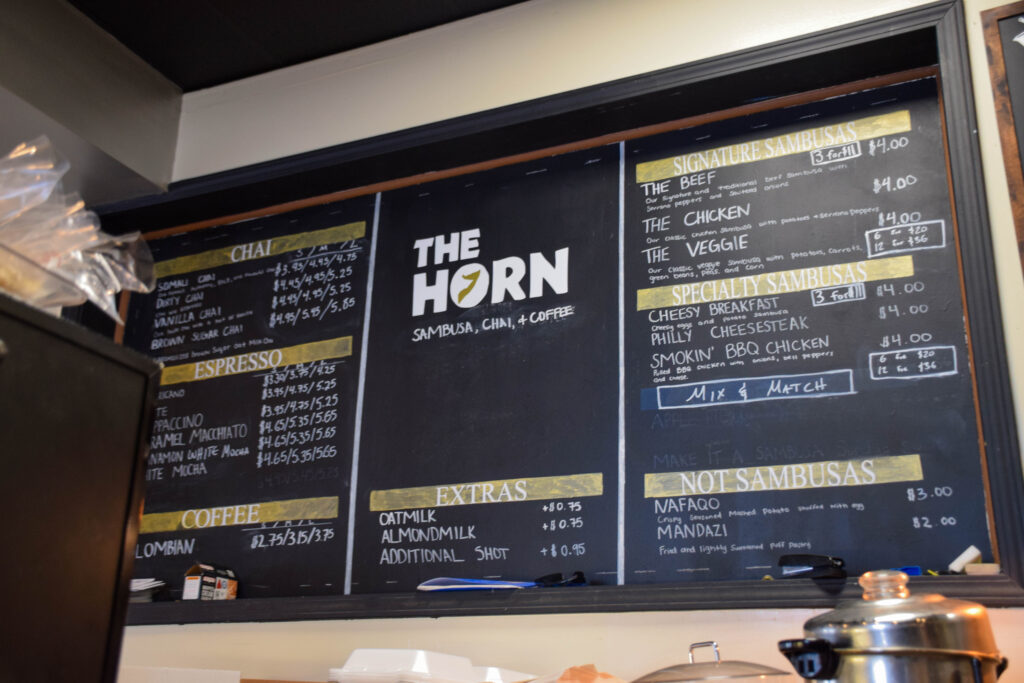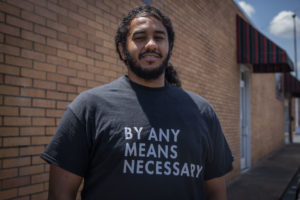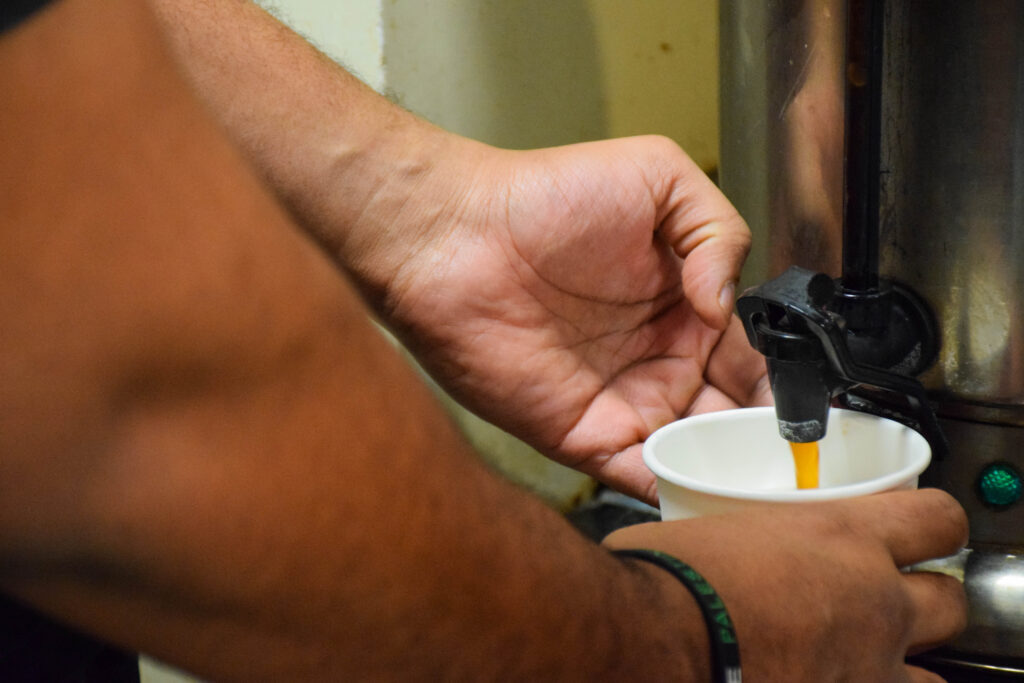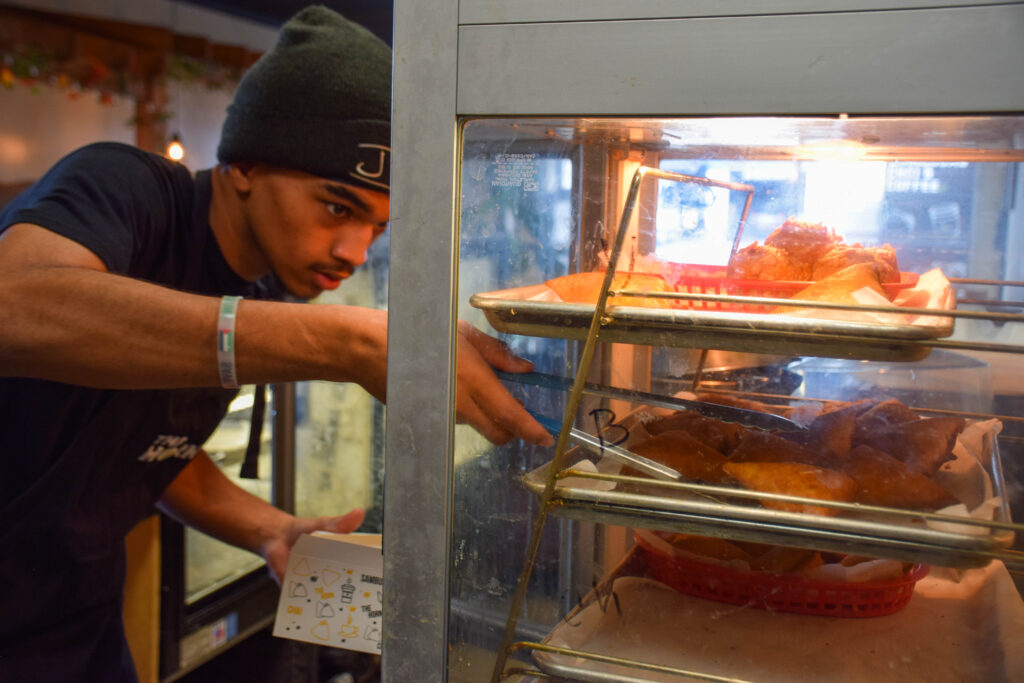
If you like chai in Nashville, you can’t do much better than The Horn, a café on Murfreesboro Pike. It’s owned by a Somali family, but it has become a gathering place for South Nashville’s immigrant communities from around the world.

Zakariya Sayid stands outside The Horn Coffee shop on a steamy July day.
After all, cultures all over East Africa, South Asia and the Middle East have their own take on chai.
Zakariya Sayid, who owns The Horn with his brother Ahmed and father Hassan, showed me how to make the Somali version. It starts by making a chai concentrate in a big pot.
The mix includes “Kenyan tea leaves and the usual spices that people know with chai, such as cinnamon, cardamom, cloves,” says Sayid.
Then steam some milk and pour it into a cup. Add some chai concentrate, and a bit more milk foam on top.
The result, Sayid says, is “a chai that on average, Somalis drink maybe two, three cups a day. It’s a comfort drink. It’s a drink to start off your day and a drink to end your day. It’s not highly caffeinated, so it won’t really keep you up.”
 Rachel Iacovone WPLN News
Rachel Iacovone WPLN NewsAt The Horn Coffee shop, Somali Chai begins with a concentrate made from tea leaves, sugar and spices steeped in a big pot.
If you want something to eat with your chai, the Horn makes sambusas, filled pockets of pastry dough that are deep-fried. Sayid says they’re related to Indian samosas. They’re considered a breakfast food in Somalia, so The Horn has experimented with making them more breakfast-y by American standards.
“Traditionally, it’s usually made with beef, chicken and veggie,” Sayid says. “But coming here in America, people like egg and cheese. So we got egg and cheese sambusas now.”
That’s part of The Horn’s magic—it feels familiar to people from cultures all over the world. Sayid sometimes he has to “translate” between cultures when taking orders.
People from El Salvador sometimes ask him, “‘Can I get like a pollo empanada or a beef empanada?’ And I usually go with the flow because I know what they mean,” he says.
 Rachel Iacovone WPLN News
Rachel Iacovone WPLN NewsAt The Horn, sambusas come with Somali fillings, like beef and veggie, and American-fusion options like egg and cheese or even hot chicken.
The Sayid family has run a sambusa-making business since 2009, and they opened the coffee shop in 2014. But starting a business was a long journey. Somalia’s military government collapsed into civil war in 1991, and the family fled the country two years later, when Zakariya was a baby. After three years of being bounced between refugee camps in Kenya, they arrived in Nashville in 1996.
It’s a similar story for many of the people who gather at The Horn – people from all sorts of immigrant communities, who’ve come to the U.S. for all sorts of complicated reasons.
In an ordinary week, Sayid says, he might see “Somalis, Ethiopians. Different Hispanics. We have Egyptians, Palestinians, people from Iraq. The whole nine yards.”
People from all of these communities gather at The Horn for church and mosque meetings, after-school hangouts, and all sorts of other social gatherings. Chai and sambusas, two Somali staple foods, have translated well between cultures, and help people feel a sense of belonging in their new home.

